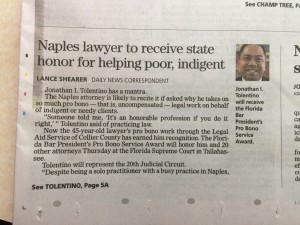If you have been paying your student loans for any significant period of time you may be eligible for the new Income Driven Repayment Adjustment. This allows a borrower who was not previously in an Income Driven Repayment (IDR) program to receive credit towards such a program. This can help borrowers who have been paying their student loans for 20-25 years receive forgiveness under the IDR program. Sounds exceptional, however there are many borrowers that have been paying their student loans for over 10 years that have not received credit towards the program and have no prospect of paying off their student loans off in the next 20 years as a result of the payment program they are in. This helps to give borrowers credit they deserve towards the IDR program. The time is limited to qualify for the one time adjustment so act fast! If you are unsure of how to qualify contact your student loan servicer!
Legal Help You Can Count OnWe put you the client first. With us you are never a number
- Give our office a call now (239) 793-7788

